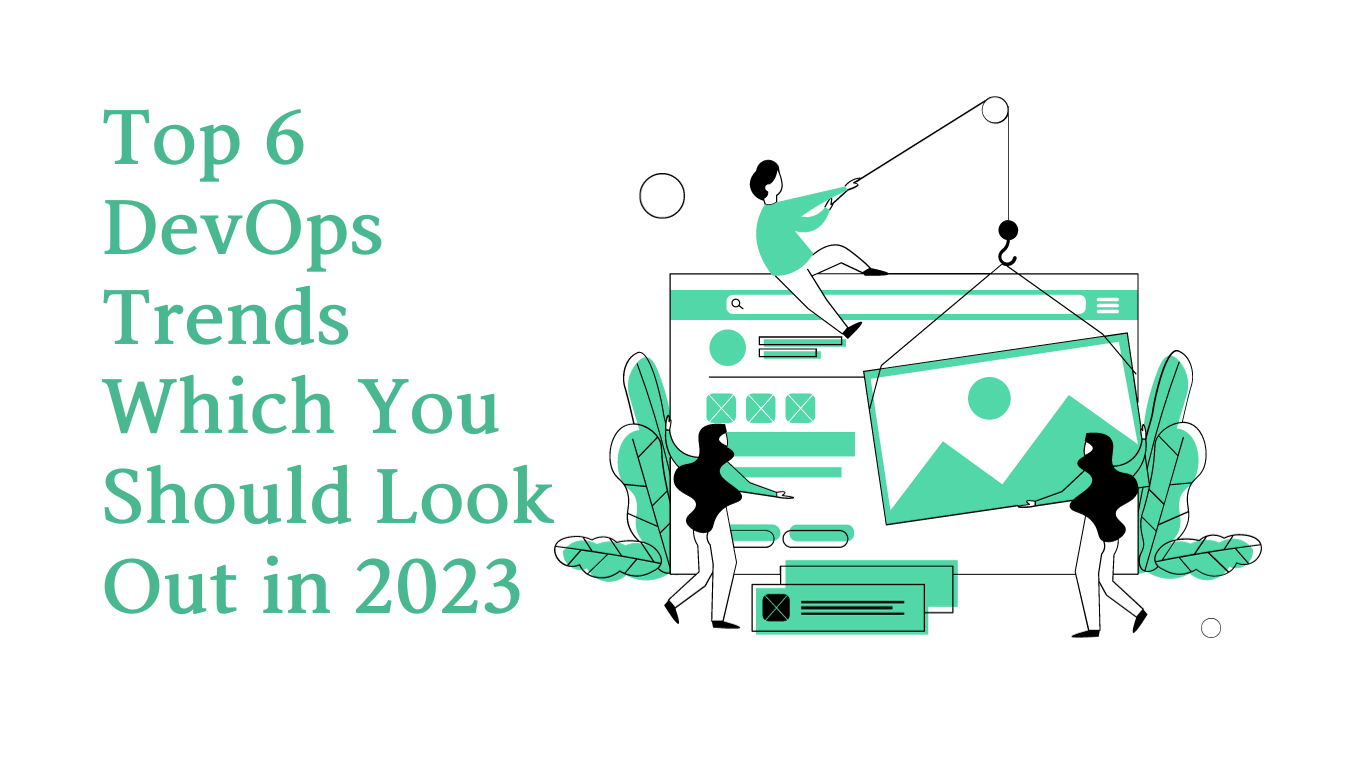Top 6 DevOps Trends Which You Should Look Out in 2023
 Nisarg Bhavsar
Nisarg Bhavsar
DevOps is a process that combines two teams and that is software development and operations teams. The principal aim of DevOps is to streamline and automate the processes associated with software development and IT operations. It plays a vital role in transforming how organizations build, deploy, and manage various software applications. It will lead to faster development cycles, improved collaboration, and enhanced software quality. DevOps is evolving rapidly so that they can cope up with the changing demands of the software industry. In this article, we will provide a glimpse of the most prominent DevOps trends and shifts expected to shape the DevOps landscape in 2023.
Nowadays, many organizations are adopting DevOps to optimize their operational efficiency and get better and faster results. Because of the changes in demands and complexity of modern-day software, the DevOps trends have consistently increased.
Top DevOps Trends in 2023:
DevOps is a rapidly evolving field, and several DevOps trends are expected to shape how organizations implement and manage their DevOps practices. The following are the top trends of Devops in 2023.
DevSecOps
If any organization wants to make its software development process more secure, then they must focus on implementing DevSecOps. It is just like DevOps, but an additional team enters into collaboration, and that is the security testing team. By implementing DevSecOps, the application development and deployment will be more secure. Therefore by integrating security with the DevOps approach, the organization will be able to recognize and address vulnerabilities, which will help to develop robust and secure applications that will improve the user experience. If you want to integrate DevSecOps into your organization, you must hire DevOps Engineer. They will guide you in implementing DevSecOps in your organization appropriately.
Serverless Computing
Serverless Computing is one of the DevOps trends that streamlines infrastructure management and allows teams to focus on code and application logic. It easily integrates into CI/CD pipelines and also scales automatically, which helps to provide robust monitoring. Because of Serverless computing, the DevOps teams can eliminate time and cost in the back-end. Every serverless provider offers various services to help them achieve different capabilities.
Kubernetes
Kubernetes is a vital component of DevOps. It is an orchestration system that automates deployment, scaling, and management of containerized applications. It aligns with the principles of DevOps by enabling infrastructure as code, continuous integration, continuous deployment, rolling updates, efficient monitoring, and promoting collaboration between development and operations teams that accelerates the delivery of reliable and scalable applications. With the help of a continuous and autonomous integration ecosystem, Kubernetes allows developers to scale up and down resources. This is one of the significant reasons why it has elevated among the top DevOps trends this year.
GitOps
GitOps will be one of the best DevOps trends included in the workflow of DevOps. Based on the architecture of Kubernetes, developers and operation managers can use Git for deploying various apps. The GipOps approach brings several benefits to DevOps, including improved collaboration, version control, quickly rolling back changes, and auditability while promoting infrastructure as code and automation principles.
Microservices Architecture
The Microservices architecture is an approach of software development that involves breaking applications into smaller parts, and these independent services can be deployed and maintained adequately. On the other side, DevOps is a process that combines both software development and IT operations to help speed up the process of software delivery and enhance software quality. When both these approaches are combined, it becomes a powerful toolset that offers different benefits for businesses and developers.
Low Code Applications
Low-code applications in DevOps is an application development process that requires minimal coding. Many organizations have addressed talent shortages by taking the help of various software that allows people of different skill levels to create apps without a limited amount of coding. Such applications can reduce the development and deployment time of software significantly. These low-code platforms help organizations develop applications without expert coding knowledge. Because of this, the user can develop their own logic, and the application can be developed just by dragging and dropping elements. This is one of those DevOps trends that helps to increase the speed of the development and deployment process by building simple and user-friendly applications.
Conclusion:
In 2023, DevOps is evolving rapidly, and specific trends in DevOps are set to shape its landscape. In this article, we have discussed the Top 6 DevOps trends you should look out for in 2023. With the increase in the emergence of DevOps trends, operational efficiency is meant to be enhanced, and it might go beyond automation in the future. These trends are focused on the continuous improvement framework, which will help improve user results.
Subscribe to my newsletter
Read articles from Nisarg Bhavsar directly inside your inbox. Subscribe to the newsletter, and don't miss out.
Written by

Nisarg Bhavsar
Nisarg Bhavsar
I'm a passionate digital marketing executive with a knack for creating engaging content. While I specialize in SEO strategies to boost online presence, I also enjoy crafting informative content related to trending technologies like Flutter, Node.js, Salesforce, and the ever-evolving mobile landscape. This unique blend of skills allows me to bridge the gap between technical knowledge and effective online marketing.